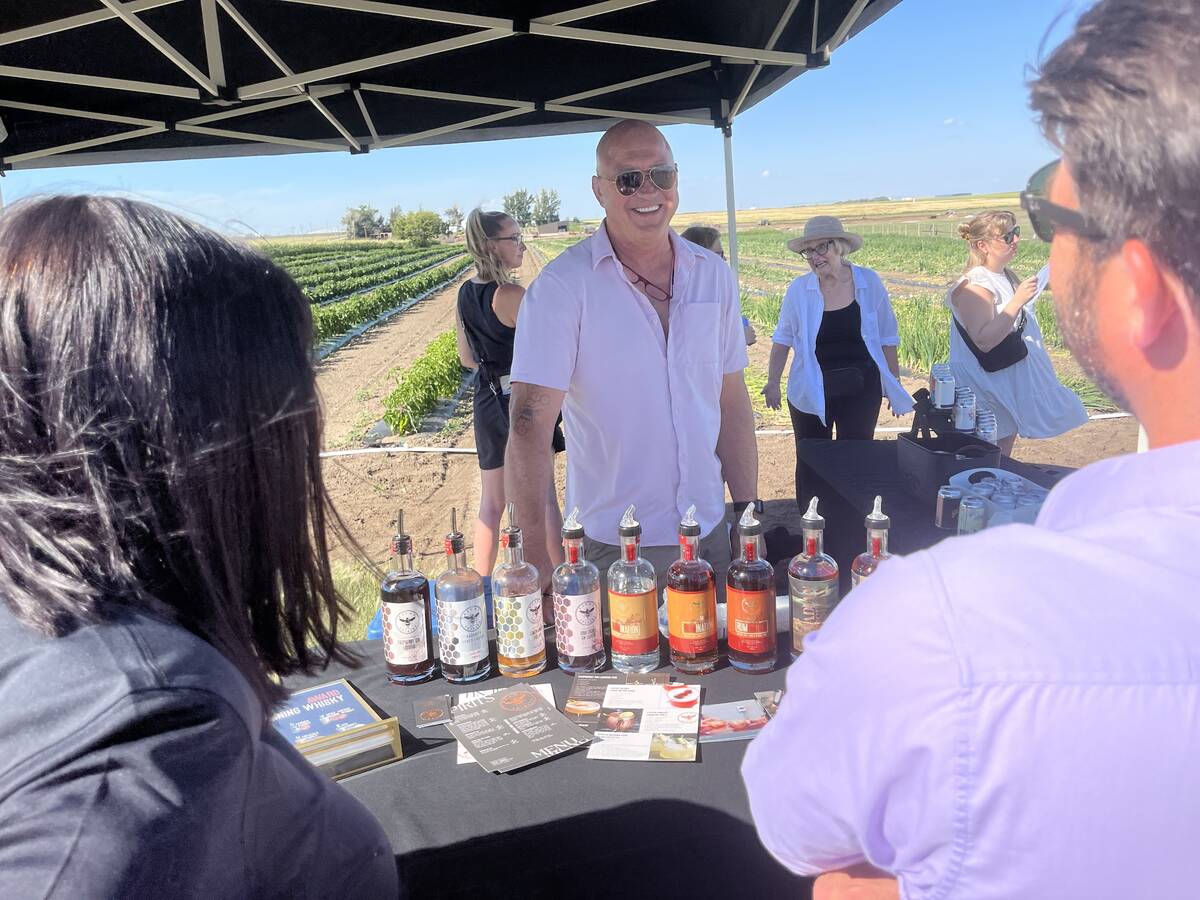Six high school students from Tisdale, Sask., may be deliberately making themselves unpopular.
The students, who call themselves the “uncool group,” have come up with a plan to add healthy food choices such as salads to the local teenage lunch spot.
They were among the groups that made presentations at a recent food forum day in Tisdale.
Kathleen Haines, a nutritionist with the Kelsey Trail Health Region, said the students surveyed their classmates and discovered that many of them eat at the concession stand that serves the school and the local recreation centre. She said the young people also found that high school students usually order hamburgers, fries, gravy and poutine.
Read Also

From farmer to award-winning distiller
Pivot Spirits showcases transition from farmer to distiller with provincial award-winning results in Alberta for Lars Hirch
Haines said the food and politics event started in 1998 when a group of interested people wanted to talk about how to organize collective kitchens and buy local food.
They organized themselves as the Food For All Coalition and developed a food security charter for northeastern Saskatchewan.
“This time we wanted to involve the producers more,” Haines said.
Audrey Hnetka, an organic vegetable grower from Archerwill, Sask., talked about selling locally and storage issues.
Local flavour
Haines said the highlight of the day was a lunch consisting of local food that was cooked by Tisdale restaurant Sweet Aroma.
The menu featured roast bison donated by a Naicam, Sask., rancher, bread made from organic grain by a Lac Vert, Sask., bakery, as well as coleslaw, pork tenderloin, wild rice and berry pies.
A speaker with the good food box program, in which consumers commit to buy regularly from local producers, said it delivered up to 200 boxes in one month in the summer.
Another speaker outlined the plan of the Broadway School in Melfort, Sask., to hold after-school cooking classes for students.
A display booth featured fair trade tea, coffee and chocolate products from developing countries as the event’s nod to food and globalization.
An aboriginal speaker and an anti-poverty speaker were scheduled but snowy weather and other complications prevented them from presenting.
When asked if the food event will be planned annually, Haines said with a laugh that “it’s kind of like childbirth and you don’t forget the pain. It’s too soon to say.”














